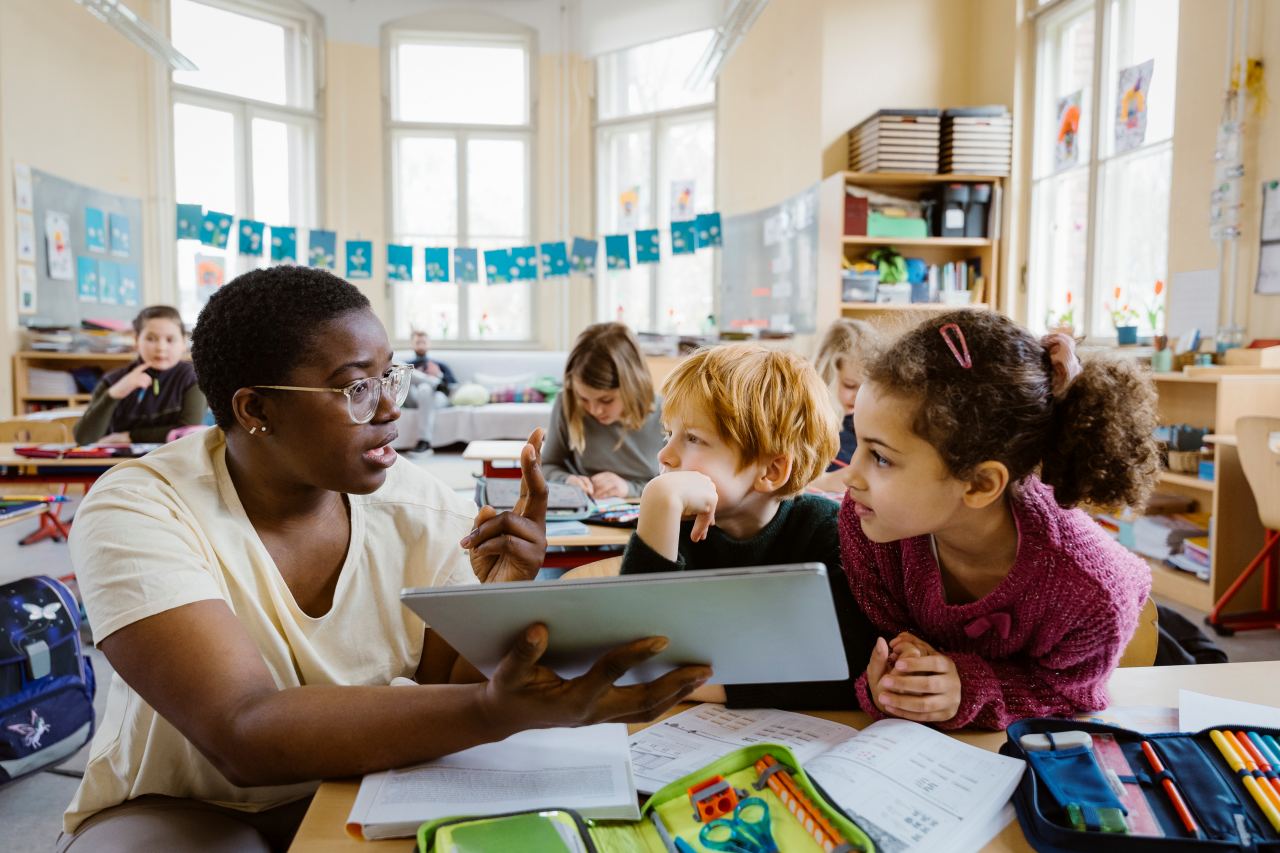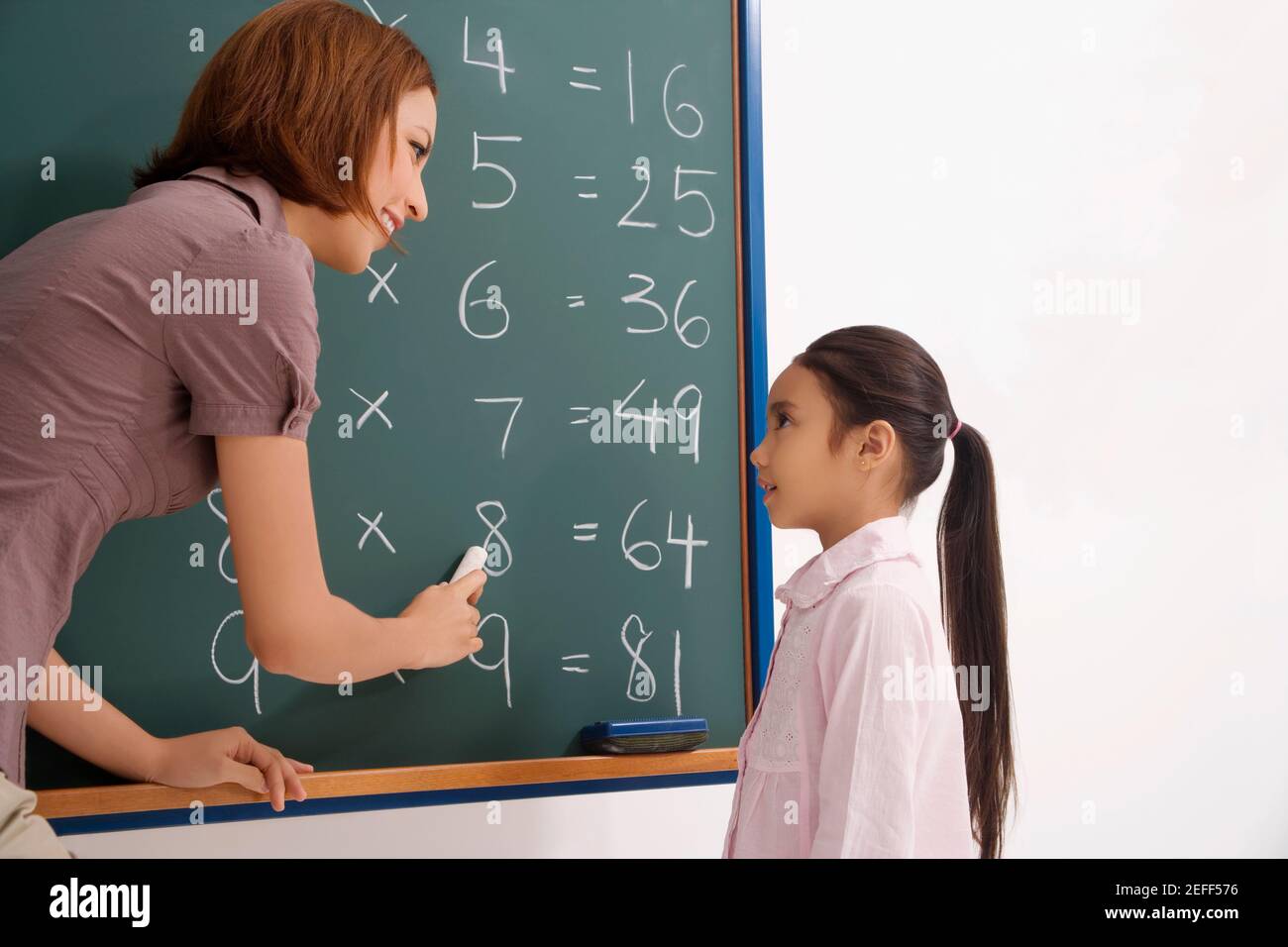Find the Best Primary Science Tuition Singapore for Enhanced Learning
Find the Best Primary Science Tuition Singapore for Enhanced Learning
Blog Article
Discovering the Various Training Strategies in Primary Science Education And Learning Today
The landscape of main science education and learning is evolving, with various mentor methods obtaining prominence in modern class. Inquiry-based knowing, hands-on experiments, and the integration of technology are redefining how teachers engage young minds. Additionally, collaborative methods and differentiated instruction are being employed to deal with the varied needs of trainees, improving both involvement and understanding. As we check out these techniques, inquiries emerge regarding their efficiency and the ramifications for future educational practices. What might these changes in strategy mean for the following generation of learners?
Inquiry-Based Learning
Inquiry-Based Discovering (IBL) is an instructional method that urges trainees to discover clinical concepts via doubting, examination, and hands-on experimentation. This approach highlights the duty of pupils as active individuals in their knowing, advertising crucial reasoning and analytical skills. By engaging with real-world questions, students become interested and determined, which boosts their understanding of scientific principles.
In IBL, instructors work as facilitators, guiding students as they navigate their queries as opposed to delivering info straight. This student-centered method permits differentiation, fitting numerous finding out rates and designs. Pupils create abilities in developing theories, creating experiments, and analyzing information, which are vital for clinical literacy.
Furthermore, IBL promotes cooperation among students, motivating them to share concepts and searchings for. This collective query promotes social abilities and a feeling of area within the classroom. The procedure of inquiry encourages durability, as students learn to embrace failing as a tipping rock toward understanding.
Hands-On Experiments
Hands-on experiments are an important component of reliable scientific research education and learning, complementing the principles of inquiry-based knowing. These experiments allow students to engage straight with scientific ideas, fostering a much deeper understanding via experiential discovering. By adjusting products and observing end results, young learners can grasp abstract concepts in tangible means.
Such activities advertise critical reasoning and analytical skills, as pupils assume outcomes, conduct experiments, and evaluate results. This procedure motivates them to ask questions, refine their understanding, and create a clinical state of mind. Additionally, hands-on experiments can be tailored to diverse knowing designs, guaranteeing that all trainees have the opportunity to engage meaningfully with the web content.
Moreover, hands-on experiments often motivate cooperation amongst peers, promoting synergy and communication abilities. Functioning in teams allows students to share concepts, talk about searchings for, and discover from each other, which enhances their overall educational experience.
Including hands-on experiments into the key science curriculum not just improves the learning environment yet additionally cultivates a long-lasting interest in scientific research. By proactively joining their education and learning, trainees are extra most likely to develop an interest for scientific questions that prolongs past the classroom.

Innovation Integration
Incorporating innovation right into key scientific research education has actually come to be increasingly important in fostering student engagement and enhancing learning end results. The usage of electronic devices, such as interactive simulations, online labs, and educational software, provides students with chances to discover scientific concepts in innovative means. These sources assist in a deeper understanding of complex topics by allowing students to picture and adjust variables that would certainly be unwise in a standard class setup.
Additionally, innovation combination encourages individualized discovering experiences. Trainees can progress at their own pace, reviewing challenging principles through multimedia resources, which cater to various knowing designs. This adaptability not just supports specific growth yet likewise cultivates a sense of freedom in learners.
In addition, innovation functions as a bridge to real-world science, attaching pupils with present research and professional payments. Access to clinical journals and online data sources widens students' point of views on clinical inquiry and promotes crucial assuming abilities.
Collaborative Knowing
Joint knowing plays a vital role in key scientific research education by promoting teamwork and communication skills amongst pupils. This strategy motivates students to function with each other, linked here share understanding, and take part in analytical, which enhances their understanding of scientific principles. By joining group activities, students find out to verbalize their ideas, listen to varied perspectives, and discuss solutions, all of which are important abilities in both real-world and academic contexts.

Research indicates that joint understanding can bring about raised inspiration and interaction in science subjects, as trainees discover satisfaction in common experiences (primary science tuition Singapore). In addition, this approach prepares trainees for future collective ventures, furnishing them with the skills needed for efficient synergy in college and expert environments. Eventually, welcoming collective learning in key science education can significantly enhance the discovering experience and advertise a much deeper understanding of scientific inquiry
Separated Guideline

Distinguished direction can show up in various ways, such as varying the content, processes, or products of knowing. For example, teachers may use tiered tasks that give varying degrees of intricacy, permitting pupils to work at their particular readiness levels. In addition, versatile organizing techniques can assist in collaboration among students with various capabilities, fostering peer learning.
Analysis plays a critical duty in this technique, as it notifies guideline and aids teachers understand each pupil's special needs. Formative assessments, such as quizzes and monitorings, can assist teachers in readjusting their methods to enhance discovering outcomes. primary science tuition Singapore. Inevitably, by applying separated instruction in key science education and learning, educators can grow a more fair and effective understanding environment, encouraging all students to reach their complete potential in understanding clinical sensations
Final Thought
In summary, the varied mentor approaches in key science education, consisting of inquiry-based discovering, hands-on experiments, innovation integration, joint learning, and set apart guideline, collectively add to a much more efficient discovering environment. These approaches promote vital reasoning, analytical abilities, and a much deeper understanding of scientific principles. By applying these important link techniques, educators can produce appealing and supportive classrooms that deal with the varied needs of students, eventually cultivating a lifelong interest in science and improving academic success.
Inquiry-Based Learning (IBL) is a pedagogical strategy that motivates trainees to discover scientific check these guys out ideas via doubting, investigation, and hands-on trial and error.Joint knowing plays an important function in primary science education and learning by fostering team effort and communication abilities amongst pupils.Research study suggests that collective knowing can lead to boosted motivation and interaction in scientific research topics, as pupils find enjoyment in common experiences.In promoting a comprehensive learning atmosphere, set apart guideline emerges as a crucial method to accommodate the diverse demands and capabilities of students in main science education and learning. Inevitably, by applying differentiated instruction in main scientific research education, instructors can grow a more fair and efficient knowing setting, encouraging all pupils to reach their full potential in comprehending clinical phenomena.
Report this page